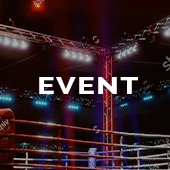There’s a commonly held belief among sports business insiders and sports media observers that the identity of the broadcasters for a live event has almost no impact whatsoever on viewership numbers.
In a 2021 Sports Broadcast Journal article, The Ringer’s Bryan Curtis was quoted as saying, “Networks know viewers almost never watch games to hear an announcer.” Sports Illustrated’s Jimmy Traina agreed: “Announcers can add or take away from your enjoyment of a game, but they have zero impact on ratings.”
I’d say that in most cases, those takes are entirely accurate. Sure, we all have broadcasters we like and broadcasters we don’t, and occasionally we’ll adjust our behavior accordingly. (For example, my mother so prefers local Philadelphia Eagles radio broadcaster Merrill Reese to whatever national crew is doing the TV call that she’ll mute her television and sync up her radio.) But if there’s a game or match or fight I want to watch, I’m going to watch it regardless of my disdain for the people calling it, and if there’s a game or match or fight that doesn’t interest me, nobody can make me care just by tossing on a headset.
The Times Square event on May 2, however, will be an exception.
The fights on the card are solid, and I probably wouldn’t miss them under normal circumstances. Then again, it’s a pay-per-view event, and any time dollars must be spent, there’s reason to pause and ponder.
In this case, though, no pausing, no pondering. I know I’m clearing my calendar to watch in real time. Because Jim Lampley is calling the fights.
Yes, the voice of HBO Boxing from 1988 to 2018, and therefore the voice of the biggest of big-time boxing in America for those 30 years, is back behind the microphone after six and a half years away.
Not entirely away from boxing as a whole, mind you – he reemerged at the end of 2023 to lend his insights in live-chat form for PPV.com, essentially the headline attraction of a second-screen experience for major pay-per-view events. And that role sent him back into the ringside area, back into the press room for fight week to publicize his work with PPV.com, and back into the boxing consciousness and conversation.
But he wasn’t calling fights. And as he told my colleague Kieran Mulvaney last April, he didn’t think he ever would again:
“People still ask the question, in media and of me, ‘Why aren’t you calling fights? Who is going to hire you to call fights?’ I know enough now to know that I’m not coming back. And there is no entity at this moment which is interested in having me be a ringside blow-by-blow commentator.”
That was 11 months ago. This is now.
Lampley’s claim that “no entity” wanted him doing blow-by-blow was certainly an exaggeration. No entity that could afford him wanted him badly enough, perhaps.
Actually, in 2021, at least one entity wanted him, and even signed him to call fights. “Lamps” was all set to return from what was at the time a two-and-a-half-year hiatus to work the Teofimo Lopez-George Kambosos lightweight title fight for Triller Fight Club, but it got postponed. When it was rescheduled, a different promoter and broadcaster picked it up, removing Lampley from the equation.
Later in 2021, Lampley was also close to doing blow-by-blow for Triller on the Oscar De La Hoya-Vitor Belfort fight, but De La Hoya withdrew due to Covid, 58-year-old Evander Holyfield stepped in on short notice, and a certain serial casino bankrupter who was between presidencies entered the ringside commentary mix. Use your powers of inference and intuition to decide how much each layer of this triple-decker turd cake twisted the politically liberal Lampley’s arm, but in the end, he walked away. He didn’t need to call a fight that badly.
But now he’s coming back, apparently comfortable enough with the complicated politics of the Times Square tripleheader occurring under the banner of The Ring magazine, which in turn means it’s occurring via the funding of the Saudi General Entertainment Authority. And if I have any misgivings about that, well, they aren’t strong enough to stop me from tuning in when Lampley is back at ringside in his signature blow-by-blow role.
Am I looking forward to this because Lampley is that damned good? Or am I looking forward to it because I am susceptible to the lure of nostalgia? The answer, of course, does not have to be purely one or the other.
Lampley is my all-time favorite boxing blow-by-blow man. That doesn’t mean he was perfect. That doesn’t mean he never got under my skin. He occasionally focused too much on what one boxer was doing and therefore missed half the narrative and ended up surprised by scorecards that shouldn’t have been so surprising. As the years went by, he grew increasingly emotional, which could be charming on certain levels (and, knowing Jim personally as I do, is simply part of who he is), but it also sometimes proved a distraction during a broadcast.
But whatever mild criticisms I could lob pale in comparison to Lampley’s praiseworthy broadcasting abilities. He could speak extemporaneously with an eloquence reminiscent of language the finest sportswriters need hours to craft. His instant recall of fights, facts and dates was almost Rain Man-esque. He could direct traffic – the trickiest part of any play-by-play gig – and make it appear effortless. His voice was authoritative but human; in an era before sports media became a competition to see who could yell the loudest, Lampley’s voice carried a dignified professionalism. He was, in timbre and style, basically boxing’s Bob Costas.
Like everyone in sportscasting (or in any walk of life in 2025, really), Lampley has his “haters.” Read the comments underneath any recent BoxingScene article concerning him – if you dare – and you’ll invariably find someone insisting Lamps always stunk and always will stink.
But for my money – and understanding that I didn’t get to witness the primes of Don Dunphy or Howard Cosell, among others – Lampley is the best ever to do it.
I can’t be certain, though, that he’ll still be great at it, or even good at it, come May 2. He’s 75 years old. Having witnessed each of my parents cross that number, I’m well aware of how most folks in that age range lose a step. There’s also the matter of ringside rust. If you stop doing something for more than six years, it isn’t easy to just pick up where you left off.
When I got into this business in 1997, Lampley’s voice, along with the HBO Boxing theme music and classy production, instantly communicated something to the audience. This is special. This matters. This is boxing at its finest. I know May 2 can’t fully replicate that, but I suspect it can give me a taste. And maybe it’s that feeling, and not the actual commentary Lampley will deliver, that’s drawing me in.
Lampley is just one of the many boxing broadcasters of my relative youth whom I’ve grown to miss.
His longtime sidekick Larry Merchant is, thankfully, still with us at age 94 but long retired from calling fights. His particular blend of intelligence, insight and IDGAF has not been approached by any color commentator who has succeeded him.
I miss their former colleague Emanuel Steward deeply, as a first-rate broadcaster and also as an absolute gem of a human being.
George Foreman used to drive me nuts at times with his ringside analysis, particularly his bickering with Merchant, but I’ve grown to retroactively love what he brought to that team and to those broadcasts.
It’s not just the old HBO gang.
I miss Steve Farhood, who only recently retired, but who came closest to replicating some of Merchant’s strengths and who always made you feel like you were in conversation with a friend as you watched the fights.
I miss Barry Tompkins and Rich Marotta, who went together when I first started covering boxing, but who also thrived separately until the opportunities for them dried up.
Even though Al Bernstein is still calling fights, I miss his partnership at Showtime with Steve Albert – the two of them brought out the best in each other. I miss certain aspects of the Bobby Czyz experience, and the Roy Jones experience, and the Andre Ward experience (Ward is still in the boxing media, but not calling fights).
There are plenty of active commentators I enjoy and have not yet had the opportunity to miss, and I won’t list them here for fear of blowback from anyone I don’t name. So if you’re still calling fights somewhere, on some network, go ahead and assume I must be a massive fan.
But whoever you are, active boxing broadcasters, the knowledge that you, personally, are calling an upcoming fight will not inspire me to park myself in front of the TV. At the moment, only Jim Lampley could have that effect on me.
Frequently, when I’ve interviewed Lampley for an article or for a podcast, and I’ve thanked him for coming on or for sharing time or his insights, he’s used a particular word that I’ve never heard any other interview subject use. He doesn’t say, “It’s my pleasure.” He says, “It’s my privilege.”
Well, it will be my privilege to hear him calling fights again in a couple of months. Whether he’s still the best in the business remains to be seen – and heard. But I’m looking forward to the way it makes me feel to hear Lampley’s voice as the soundtrack while I’m watching punches fly, regardless of the exact words coming out of his mouth.
Eric Raskin is a veteran boxing journalist with more than 25 years of experience covering the sport for such outlets as BoxingScene, ESPN, Grantland, Playboy, and The Ring (where he served as managing editor for seven years). He also co-hosted The HBO Boxing Podcast, Showtime Boxing with Raskin & Mulvaney, The Interim Champion Boxing Podcast with Raskin & Mulvaney, and Ring Theory. He has won three first-place writing awards from the BWAA, for his work with The Ring, Grantland, and HBO. Outside boxing, he is the senior editor of CasinoReports and the author of 2014’s The Moneymaker Effect. He can be reached on X, BlueSky, or LinkedIn, or via email at RaskinBoxing@yahoo.com.




